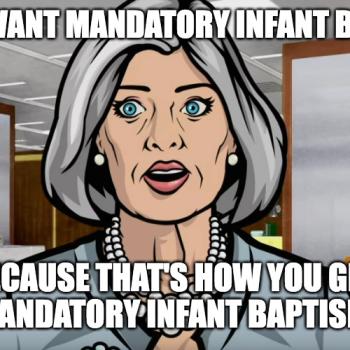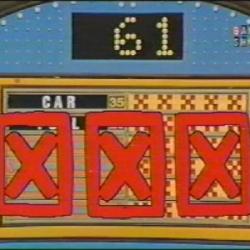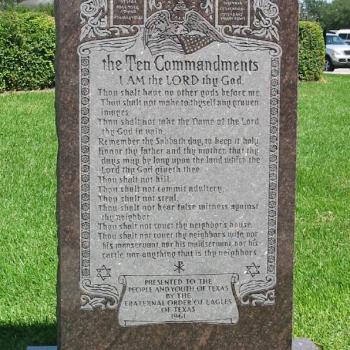I did not know this about my state of Pennsylvania.
Constitution of the Commonwealth of Pennsylvania
Article 1: Declaration of Rights
Religion, Section 4.
No person who acknowledges the being of a God and a future state of rewards and punishments shall, on account of his religious sentiments, be disqualified to hold any office or place of trust or profit under this Commonwealth.
WTF? How is that not a religious test for public office?
I’m guessing/hoping that this was originally intended to be an expansive tenet — a way of ensuring that Deists, Unitarians and Jews were not excluded from the right to hold office. But in specifying what particular sorts of “religious sentiments” cannot disqualify one from public office it thereby implies that it is permissible to disqualify anyone who holds any other sort of religious sentiment. It defends the rights of certain types of religious believers, but not the rights of others. It excludes polytheists and atheists.
That is, explicitly, religious discrimination. A religious test for public office.
So this isn’t ambiguous or tricky or difficult. Article 1, Section 4 of Pennsylvania’s state constitution is illegal.
This is the most pertinent law, from the United States Constitution, Article VI, paragraph 3:
The Senators and Representatives before mentioned, and the Members of the several State Legislatures, and all executive and judicial Officers, both of the United States and of the several States, shall be bound by Oath or Affirmation, to support this Constitution; but no religious test shall ever be required as a qualification to any office or public trust under the United States.
Note that this applies not just to the federal government, but explicitly also to “the several States.”
The religious discrimination written into Pennsylvania’s state constitution cannot legitimately be enforced, but that doesn’t change the fact that such religious discrimination has no place in state law. It’s wrong. It should be removed.
Seriously, the National Constitution Center is here in Pennsylvania. We have no business hosting such a thing if we’re going to maintain a state constitution that enshrines religious discrimination and thus directly contradicts the letter and the spirit of the U.S. Constitution.
I also don’t like Article 1, Section 4 of Pennsylvania’s state constitution because it’s asinine. It teaches and upholds a stunted, juvenile notion of morality, character, virtue and human nature. It says that justice can only be understood, upheld and administered by those who seek reward and fear punishment.
Immature hogwash. I do not want a bunch of Bildads and Eliphazes occupying every “office or place of trust” in the commonwealth, thank you very much. If the playwright of Job knew enough thousands of years ago to recognize that their view is ridiculous, then I see no reason to enshrine it into law today.
I am a Christian and I believe in an ultimate reconciliation, in something that might sort of be described — clumsily and ill-fittingly — as “a future state of rewards and punishments.” But that is a consequence of my belief in justice, not the source of that belief. To turn that upside-down and backwards — making the appeal to this unseen, unproved “future state” the basis for justice in this world — is to invite abuse. It paves the way to the kind of other-worldliness that creates this-worldly injustice — to “pie in the sky when you die” and “kill ’em all and let God sort ’em out” and every other formulation in which the promise of justice in some “future state” serves as a pretext for not pursuing justice in the present.
So in my view, Article 1, Section 4 of Pennsylvania’s state constitution isn’t just illegal, it’s dangerous.















